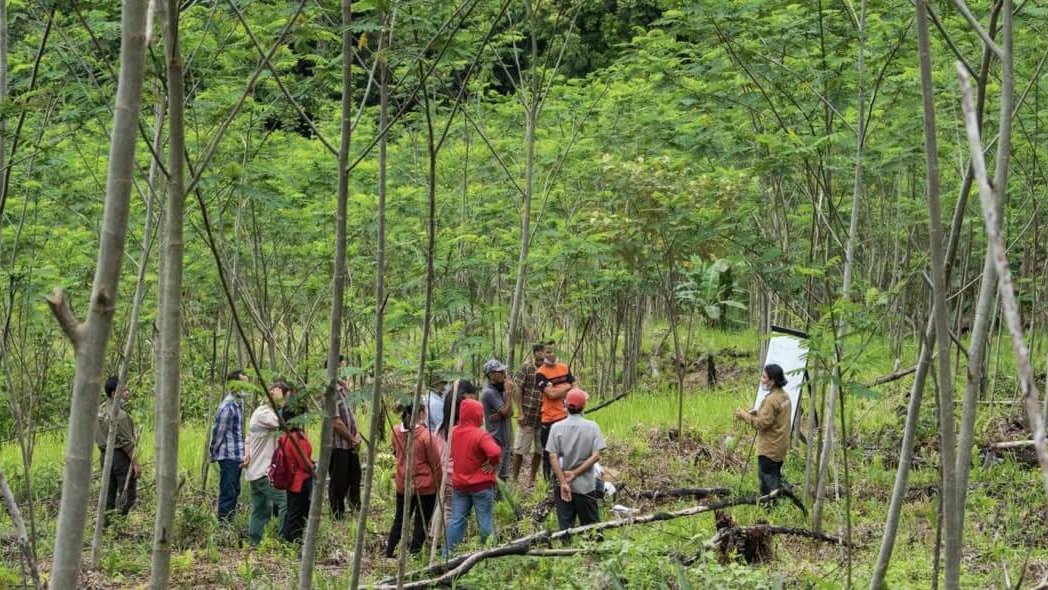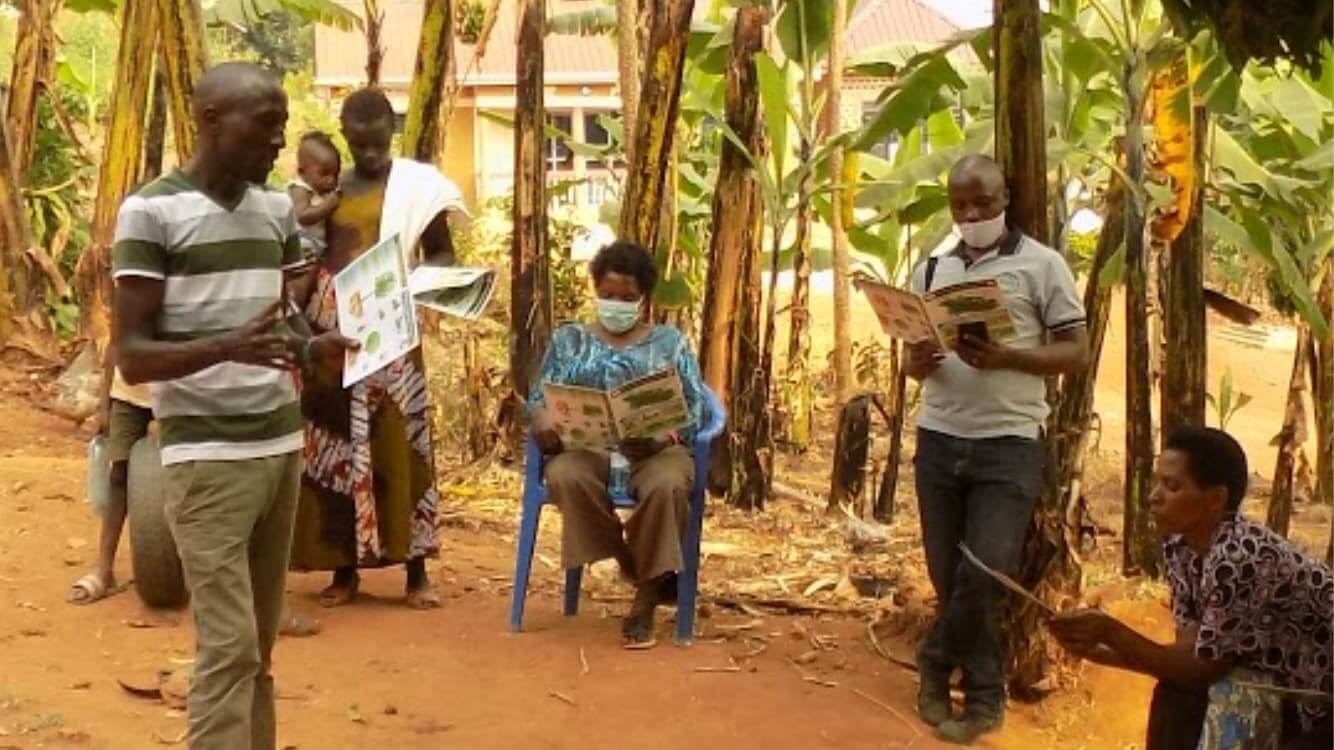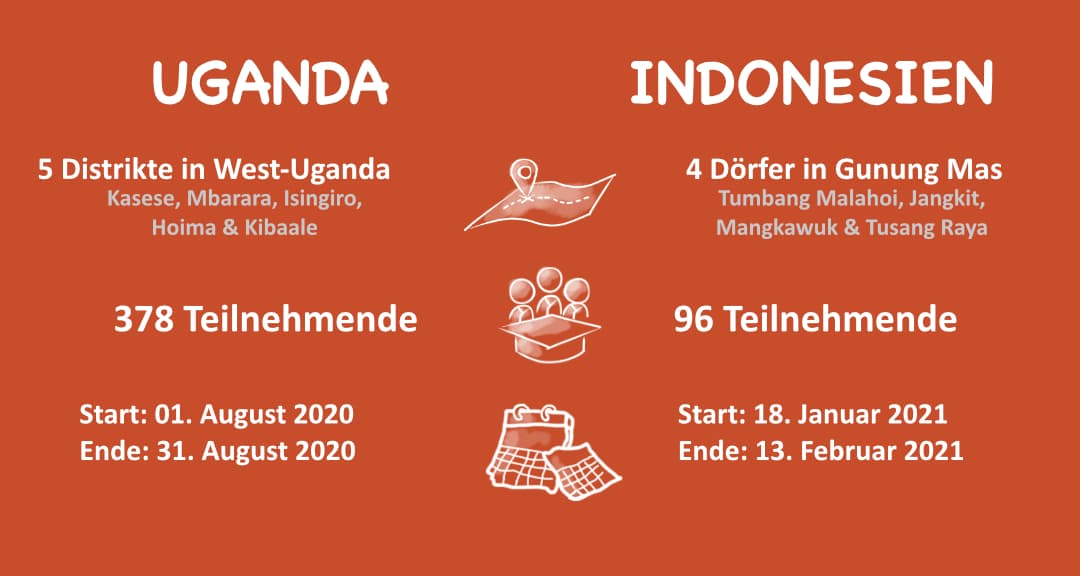
As one of the activities of our reforestation approach, the Farmer Field School aims to integrate expert agroforestry knowledge with insights from local farmers.
Its goals are to:
1) Teach farmers the basic agroforestry concepts, practices, and technologies.
2) Practise basic tree management in agroforestry systems with the farmers.
The activities in the Farmer Field School consist of learning the theoretical background as well as having practical sessions in the field. The Fairventures staff uses our GAP manual (Good Agroforestry Practice) as their main resource to conduct the Farmer Field School. GAP is a module which has been precisely designed as a tool for teaching farmers in tropical conditions the key capabilities of agroforestry.

Every session starts with a pre-test to evaluate the farmers’ current level of knowledge on the topic. Through this, we gain valuable insights into the needs of the farmers, allowing us to meet them in an increasingly targeted manner.
Amidst a global pandemic, we took preventive measures to ensure and protect the health of all staff and participants involved. The implementation of the Farmer Field School complied with health protocols by providing handwashing stations, hand sanitizers, and masks at the entrance for every session.
Great feedback by the participants
Harsani Husein Jamal (see photo below), one of the smallholders in Indonesia stated that the Farmer Field School is a great opportunity for the locals, especially in his village, Mangkawuk, to learn about Sengon cultivation and how to manage their land properly. He said that the newly gained knowledge will be very useful for them to manage their land and he hopes it can improve the livelihoods of the people in his community.
Ntajumba Benard, who took part in the Farmer Field School in Uganda, emphasized the impact of knowledge transfer within the communities: “With this kind of training, I am able to transform my community members as I pass on the knowledge to them!” he explained. “They will now learn from me how to prune their trees and learn that keeping their plots weed-free is critical for better yields.”

We are going to extend our outreach to new areas and meanwhile work on our system to further support the already trained participants. Because even though we equip farmers to work more and more independently, we always offer additional education and site inspections to help them succeed in the long term.
Results
